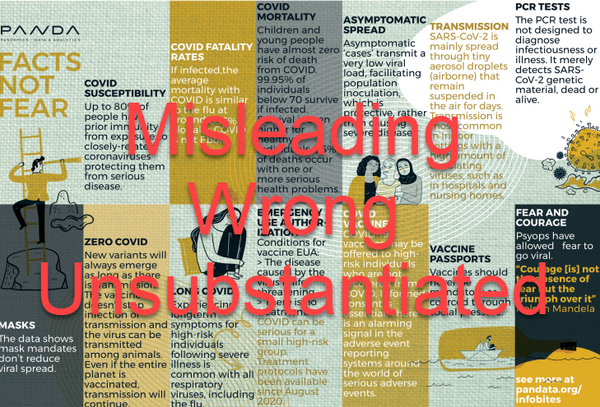Ross Stevens on Bitcoin
I've been incredibly impressed when I've listened to Ross Stevens of NYDIG Capital talking about Bitcoin. He first came to my attention when he had the interview with Michael Saylor as the opening session of MicroStrategy conference on Bitcoin for corporations.
This is one of the best videos I've seen introducing Bitcoin in a eloquent and well reasoned manner. If you haven't watched that, you need to as it's probably one of the best non-technical introductions to Bitcoin.
I've been following NYDIG's Twitter account in anticipation of some more good discussion on Bitcoin. Today I have been rewarded with another great interview.
In the video they also talk about the Stone Ridge shareholder letter which I link below:

What is money?
They talk about defining money and Ross defines money as technology for taking wealth created today and making it available in the future. With hard money keeping it's value and soft money not being as good. Money is valued not for it's own intrinsic value, but for it's ability to store value over time.
This also means that money is a "title" to human time. So it's a way in which we transact with our future selves. We are willing to sacrifice our time for money, so if money is devalued it devalues human time.
"We’re not even thinking about thinking about raising rates.”– Jerome Powell, Chairman of the Federal Reserve, June 10, 2020
Given quotes such as the one above the possibility that inflation may be allowed to increase is strong. This indicates a potential for theft of our time. He mentions that Bitcoin a "peaceful weapon of choice" against the theft of time through devaluation of money.
Sale-ability across time
He says fiat (traditional money) in terms of gold (and silver) has changed. In terms of gold vs. silver he says that the supply of gold has been growing slower over long periods and hence gold is a better store of value for this reason. The main problem, compared to Bitcoin, is that the supply of gold is likely to increase as the price of gold would increase. On the other hand Bitcoin's supply is capped and independent of demand (protected by maths and cryptography I have to add) and hence the price is quite geared. He concludes:
Bitcoin is the first store of value in human history who's supply is completely impervious to any amount of increased demand.
Hence Bitcoin is better at being gold than gold.
Volatility
He speaks about a shift in mindset where one needs to realise that Bitcoin has no volatility as opposed to the volatility of fiat. The volatility is kind from a couple of point views:
- The fact that fiat is at the mercy of human whims.
- And from his point of view, if you think in Bitcoin terms your point of reference shifts. Especially given that the fiat system if under control of a number of people.
De-risking of Bitcoin, innovation and adoption
He believes Bitcoin was de-risked in 2020. This is because Bitcoin is not going to zero. The left tail (zero) has been removed. And hence the mean explodes.
Strangely enough he says millennials and life insurers have the longest duration liabilities and Bitcoin is ideal for this.
He is expecting massive innovation in Bitcoin. One of the examples is that they are working with FIS (presumably this organisation) to add Bitcoin to their platform. That platform may be used by multiple banks and it brings Bitcoin with the perceived safety of banks to the individual.
Another example is annuities, dividends and other benefits from life insurers being (partially) paid in Bitcoin. He believes getting paid your salary in Bitcoin will become a more common option.
The beginner's mind
In the time of change a beginner's mind should be valued because it seeks out the why and is not married to an existing model. Central bankers do not have this because of extreme consensus in their thinking.
He sees Bitcoin as the ultimate "risk-on" asset as the USD supply is increased as well as "risk-off" as an asset of safety in the place of gold. I did not follow him here clearly though. Seemed he repeated the same points on both sides of this argument.
What does the market not appreciate?
He believes one of the following may happen (at 50:50) in 12 months but the market might put that much further out:
- A country change their legal tender laws to include Bitcoin
- A central bank buying Bitcoin as part of their reserves
This may happen offensively where a forward thinking leader may do this for possibly a poor country to be pro-active. Or defensively as an act of desperation. Sounds a little soon to me, but there may be a defensive scenario that forces a country's hand?
Layer 2
He says the use case of store of value is enough but we have:
- Electronic bearer asset
- Open source monetary network
These together can achieve final settlement anywhere and anytime in the world which gives new "rails" for the financial transactions.
This is early "designing the (baseball) bases" stuff.
Warren Buffett and Charlie Munger
They have been quite negative about Bitcoin. He feels that:
- Bitcoin is solving real problems (such as remittance) and hence cannot be "rat poison".
- He focuses on projects that are long-term (such as cathedrals which will outlive a single lifetime). Bitcoin is a new monetary cathedral and hence not "rat poison" nor "contrary to the interests of civilisation". Here he is referencing a piece by Nic Carter.
What could go wrong?
He expects attacks from governments making life difficult for Bitcoin, via tax, rules and other regulations. He says it' is a case of when not if. I think that this is when Bitcoin will show it's value. I believe if the Chinese government really "bans Bitcoin" the price should go up and not down as that is almost confirming the value (and threat) to governments. This is as opposed to the Bitcoin price drops that we see on mostly fake news of the Chinese government "banning Bitcoin".
What is he excited about?
Helping others and inclusion. Bitcoin is beneficial for those holding their assets in cash and this tends to be lower income people. Bitcoin is an ark in this context.



